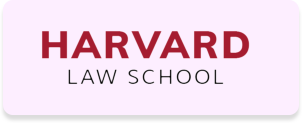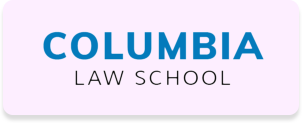Your Guide to LSAT Prep in
SAVANNAH
Savannah, known for its historic charm and vibrant academic community, offers an ideal setting for LSAT prep courses, tutoring, and practice tests. With institutions like Savannah State University and Georgia Southern University–Armstrong Campus, students have access to valuable academic resources, quiet libraries, and study-friendly spaces. Whether you prefer a structured study environment or a laid-back coffee shop, Savannah provides a great atmosphere for LSAT success.
Overview of the LSAT
The LSAT is a standardized test used as part of the law school admission process in the United States and Canada. It measures reading comprehension and logical reasoning skills. The test is typically administered eight times a year at various locations worldwide.
The LSAT has been described as one of the most difficult tests an individual can take. It is administered in two parts. The first part includes three scored sections: two Logical Reasoning sections and one Reading Comprehension section, along with an unscored experimental section, which may be either Logical Reasoning or Reading Comprehension. This experimental section helps test-makers assess potential questions for future exams and does not affect your score.
The second part of the LSAT is an unscored argumentative writing essay, which is taken separately online. This essay can be completed as early as eight days before your LSAT test day and up to a year afterward.
The LSAT is scored on a scale of 120-180, with the average score being 152. Therefore, a score of 170 or above is considered an elite score, and a score of 180 is the highest possible score.
Requirements, Scores, etc.
You do not need a degree in a particular field to take the LSAT, and while most applicants have a bachelor’s degree, there is no formal requirement to have completed one to register for the test. However, law schools typically require a bachelor’s degree for admission.
The LSAT is now offered multiple times throughout the year, with flexible scheduling options. Candidates can choose to take the exam either at a Prometric testing center or online with a live remote proctor. Registration deadlines are usually around a month before the test date.
The LSAT score is valid for five years. If you retake the LSAT, law schools will generally see all your scores from the past five years. Some schools use your highest score, while others might consider an average or your most recent score depending on their individual policies.
The LSAT is scored on a scale of 120-180, with the average score being 152. Therefore, a score of 170 or above is considered an elite score, and a score of 180 is the highest possible score.
Law Schools in Savannah and nearby
While Savannah does not have a law school of its own, there are several well-regarded law schools within a reasonable distance:
- University of Georgia School of Law (Athens, GA) – A highly ranked law school with a strong reputation.
- Mercer University School of Law (Macon, GA) – Known for its emphasis on practical legal training.
- Charleston School of Law (Charleston, SC) – A private law school focused on legal education and advocacy.
Why Savannah Is Great
Savannah offers a mix of academic institutions, quiet study spaces, and scenic locations, making it a great place for LSAT preparation. Whether you prefer studying in a university library, a peaceful park, or a cozy café, Savannah has plenty of options.
Popular study-friendly locations in Savannah include:
- Lane Library (Georgia Southern University–Armstrong Campus) – A great academic setting with study resources.
- Live Oak Public Libraries – Bull Street Library – A quiet space for focused studying.
- The Coffee Fox – A relaxed café with a study-friendly atmosphere.
- Forsyth Park – A scenic outdoor location ideal for study breaks.
Famous People Associated with Savannah
- Juliette Gordon Low – Founder of the Girl Scouts of the USA.
- Paula Deen – Celebrity chef and television personality.
- James Oglethorpe – Founder of the Georgia colony.
- Flannery O’Connor – Renowned Southern Gothic writer.

















